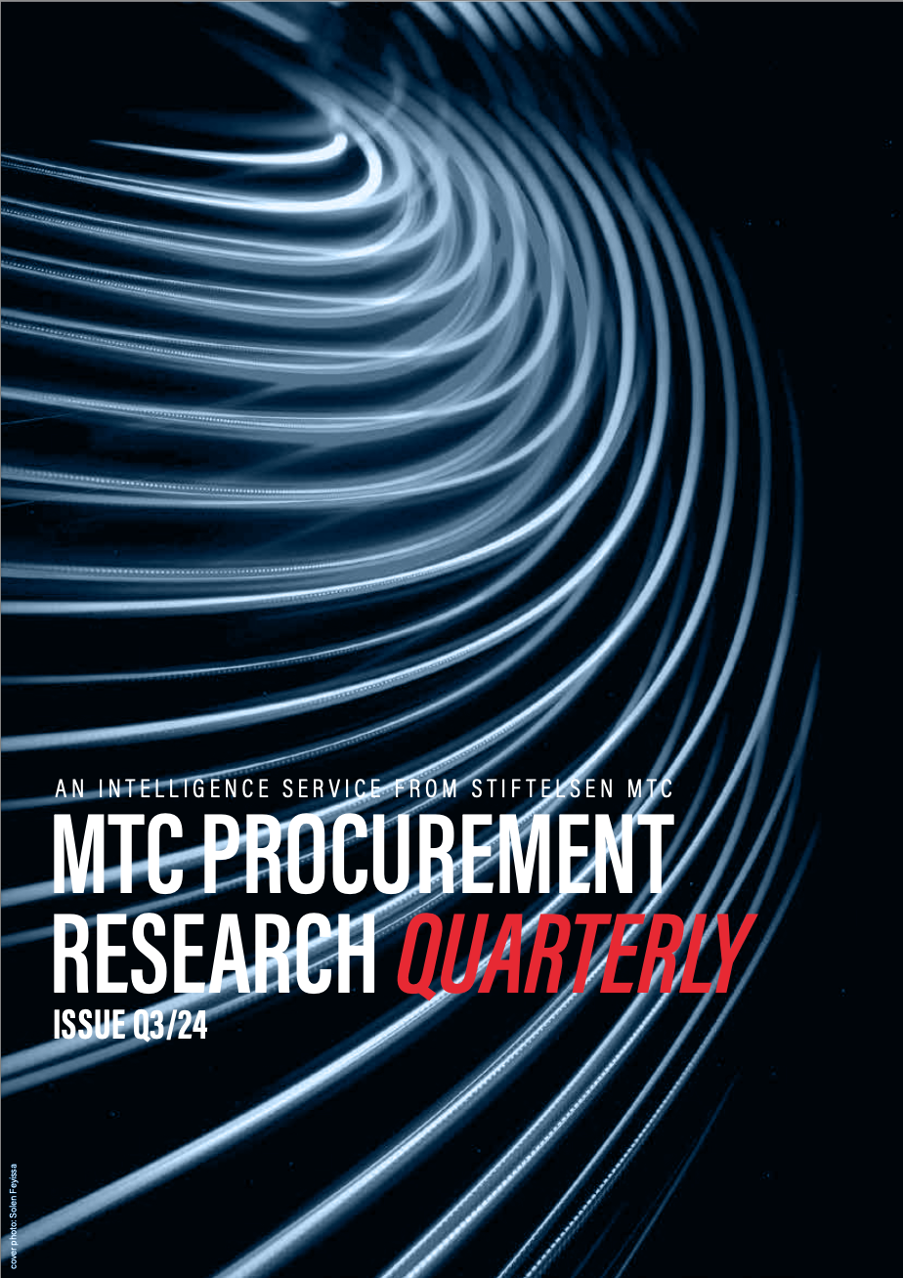MCT Procurement Research Quarterly

MTC Procurement Research Quarterly – Your source for the latest research in procurement
MTC Procurement Research Quarterly is an exclusive newsletter for members of MTC Friends – a community for those who want to keep up to date with the latest research and practical knowledge in procurement and supply chain management. The newsletter is published four times a year and contains insights from leading researchers, current studies and opportunities for dialogue between academia and business.
As a member of MTC Friends you get access to:
- The latest research findings in purchasing and supply chain
- A platform for networking between buyers and researchers
- Invitations to seminars and MTC’s annual conference at the Stockholm School of Economics
Read more here: Public Partners – MTC Friends
Below are three selected articles from the latest issue of MTC Procurement Research Quarterly.
SELECTED RECENT ARTICLES
An exploratory survey of editorial board members of JPSM sought to outline future trends in Purchasing and Supply Management (PSM) across five key areas: supply strategy, strategic sourcing, purchasing organisation and management, performance measurement and management, and procurement digitalisation.
The survey indicates that the following research areas will take centre stage in the years to come:
- Supply strategy: Role of NGOs and governments; influence of procurement on supply markets; supply strategies that maintain sustainability.
- Strategic sourcing: Growth of strategic alliances with key suppliers; interplay between established and emerging suppliers; balancing the trade-off between risk management, sustainability, and cost.
- Purchasing organisation and management: Implications of AI; negative consequences of over-dependence on tech.
- Performance measurement and management: Data-driven decision-making leading to more sophisticated performance measurement; new governance mechanisms for performance data collection, sharing and disclosure
- Procurement digitalisation: Developing a symbiotic relationship between digital technologies and human PSM professionals; blockchain as an enabler of circular purchasing practices.
SOURCE: Journal of Purchasing and Supply Management
Recent advances in AI and machine learning can not only automate essential procurement processes, but also could have important implications for how procurement organisations are structured and governed, how buyers are hired/trained, and how they interact with external suppliers and internal stakeholders. In exploring these impacts, a recent literature review of 46 case studies revealed the following salient trends:
- Experts from larger companies agreed that it is essential to have a holistic view of data processing needs and capabilities to enable cross-functional usage instead of allowing data silos to exist.
- Companies that are leading in the use of AI and ML technologies seem to have a more long-term perspective, greater focus on data quality, and more pragmatic thinking.
- Some experts suggest that AI and ML technologies should be used to address challenges such as sustainability and risk management and not for incremental improvements of already highly optimised processes.
SOURCE: Journal of Purchasing & Supply Management Spreitzenbarth, J. M., Bode, C., & Stuckenschmidt, H. (2024). Artificial intelligence and machine learning in purchasing and supply manage- ment: A mixed-methods review of the state-of-the-art in literature and practice. Journal of Purchasing and Supply Management, 30(1), 100896.
A study investigated the many ways in which AI can enable strategic decision-making for purchasers in an unpredictable environment. The researchers analysed five AI- and MLT-based intelligent purchasing systems and found the following results:
- AI can make purchasing decisions more strategic and less operational. Strategically, AI can help in intelligence-gathering, supplier integration, and prediction.
- AI can afford purchasers more capabilities and enhances the purchasing function. At a tac- tical level, AI can help manage both resources and risk and help monitor performance.
- AI can also help with sourcing, process automation, contracting, administration, and payment control.
The authors note, however, that most visionary capabilities of AI lie in its ability to optimise CSR policies, managing partner suppliers, and predicting socioeconomic instability, besides its more common applications in forecasting demand and expenditure. For example, AI can integrate digital technologies used by buyers and help companies predict market trends to achieve and maintain a competitive advantage.
SOURCE: Journal of Business Research Allal-Chérif, O., Simón-Moya, V., & Ballester, A. C. C. (2021). Intelligent purchasing: How Artificial Intelli- gence Can Redefine the Purchasing Function. Journal of Business Research, 124(1), 69–76.
Do you also want to be informed about the latest research and become part of our network?
Contact us at MTC to become a member of MTC Friends and get full access to our newsletters and other member benefits.

